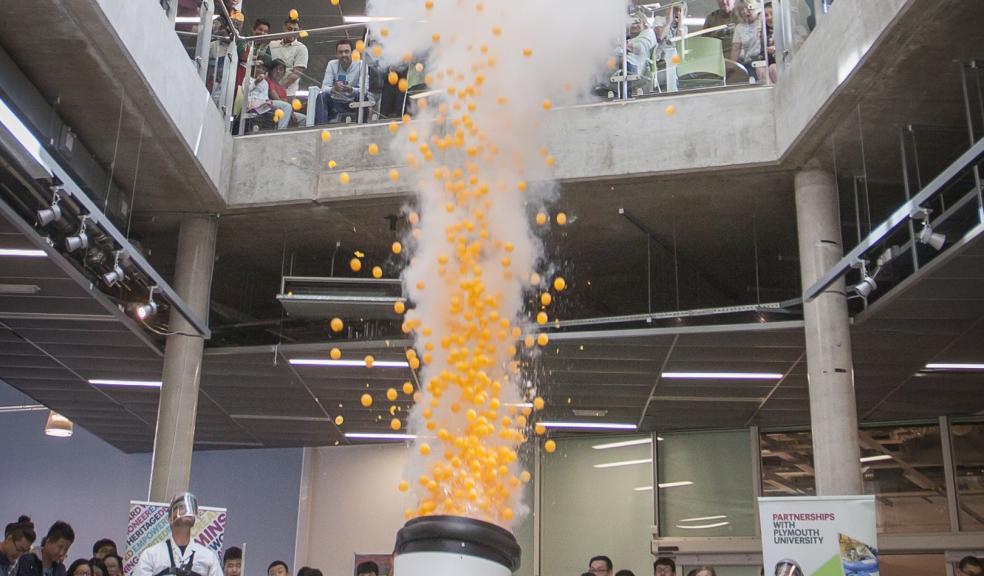
Liquid nitrogen and ping-pong balls collide in the name of science
What happens when you place liquid nitrogen in a container filled with 1,650 ping-pong balls?
It may not be a question asked every day, but scientists at Plymouth University have staged just such an experiment to inspire people about the power of science.
Led by Dr Roy Lowry, Associate Professor in Physical Chemistry, the experiment begins when a canister of liquid nitrogen is placed into a plastic bin containing warm water.
As the ping-pong balls are poured on top, the chemical heats up and at its boiling point of -196˚C (-320˚F) it creates eye-catching consequences.
The ping-pong balls are fired high into the air, as can be seen on this video of the experiment, which scientists hope will ignite public imagination with regard to other areas where science impacts on everyday life.
Dr Lowry, a Member of the Royal Society of Chemistry (RSC) and Fellow of the Higher Education Academy, said: “For me, experiments like this are the shop window for science. They create the wow factor that is usually followed by the question, ‘why?’. My hope is that such experiments will excite young (and not so young) minds to ask how and why such things happen and hence to delve deeper into science.”
This is not the first time Dr Lowry has performed this particular experiment, and he has also been involved in other explosive exploits in recent years.
In 2006, he set a then Guinness World Record when – as part of the National Firework Championships in Plymouth – he released an amazing 56,649 rockets in 30 seconds.
He is also part of the Royal Institution's Science Events for Schools programme, and has helped to organise schools events at the University including the Salter's Festival of Chemistry.
He also occasionally acts as a firer for a professional firework display company and is accredited by the British Pyrotechnists Association.
This experiment was staged in front of an audience of international students attending the Plymouth University Summer School.
Dr Lowry added: “I became a chemist thanks to a teacher who regularly showed us chemistry as well as taught it. I’m a firm believer in the power of the visual to generate passion for a subject and we need passionate problem solvers in today’s world.”
If you want more information about the Chemistry courses on offer at Plymouth University this September, visit https://www.plymouth.ac.uk/courses/undergraduate/bsc-chemistry or call our Admissions hotline on 01752 585858.











